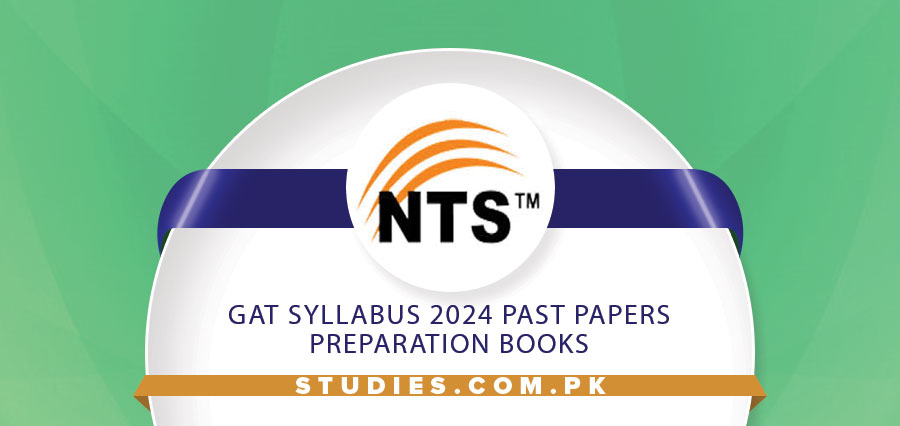Exploring the realm of graduate education begins with understanding the intricacies of the Graduate Assessment Test (GAT). This page shows the GAT Test Syllabus 2025 which will help you with GAT test registration and early preparation. Let’s delve into the comprehensive syllabus of GAT, shedding light on its key components and significance:
NTS GAT Syllabus 2025 Past Papers, Preparation Books
Central to the GAT syllabus is the domain of analytical reasoning, where candidates are tasked with unraveling complex problems and deducing logical conclusions. From syllogisms to logical deductions, this section evaluates candidates’ ability to think critically and make informed decisions.
GAT General Past Papers
Quantitative aptitude forms another cornerstone of the GAT syllabus, probing candidates’ proficiency in mathematical concepts ranging from algebra to geometry. With a focus on quantitative analysis and problem-solving, this section gauges candidates’ numerical reasoning skills essential for success in various academic and professional domains.
GAT Subject Past Papers
Mastery over language and communication is paramount in the GAT syllabus, as evidenced by the emphasis on verbal ability. Candidates must exhibit a strong command of vocabulary, grammar, and comprehension, showcasing their ability to articulate ideas effectively and comprehend complex textual passages.
GAT Paper Pattern/Distribution
| Category | Test Type | Verbal Reasoning | Quantitative Reasoning | Analytical Reasoning | Total |
| GAT – A | Business and Engineering Students | 35% | 35% | 30% | 100% |
| GAT – B | Art, Humanities and Social Sciences Students | 50% | 30% | 20% | 100% |
| GAT – C | Agricultural, Veterinary, Biological & Related Sciences Students | 45% | 35% | 20% | 100% |
| GAT – D | Religious Studies Students | 50% | 30% | 20% | 100% |
Law GAT Syllabus
A broad understanding of diverse subject matters is essential for success in the GAT, underscoring the importance of general knowledge. From current affairs to historical events, candidates must demonstrate a well-rounded awareness of the world around them, reflecting their intellectual curiosity and engagement with broader societal issues.
NTS GAT Subject Syllabus
| Arabic | Meteorology |
| Agriculture Economics | Microbiology |
| Agriculture Extension | Pakistani Language (Brahvi) |
| Agriculture-Crop Production | Pakistani Language (Balochi) |
| Agriculture-Crop Protection | Pakistani Language (Punjabi) |
| Agriculture-Food Sciences | Pakistani Language (Pashto) |
| Agriculture-Plant Genetics | Pakistani Language (Saraiki) |
| Architecture | Pakistani Language (Sindhi) |
| Bio Chemistry | Pakistani Language (Urdu) |
| Bioinformatics | Pakistan Studies |
| Biotechnology | Pharmacy |
| Botany | Physical Education |
| Chemistry | Physics |
| Civil Engineering | Political Science |
| Computer Engineering | Psychology |
| Computer Science | Remote Sensing & GIS |
| Economics | Social Anthropology |
| Education | Sociology |
| Electrical Engineering | Statistics |
| Electronics | Telecommunication Engineering |
| English (Linguistics) | Textile Engineering |
| English (Literature) | Veterinary (Animal Sciences) |
| Environmental Sciences | Veterinary (Bio-Medical Sciences) |
| Fine Arts | Veterinary (Clinical Sciences) |
| Forestry and Range Management | Veterinary (Patho-Biological Science) |
| Geography | Wild Life |
| History | Zoology |
| Home Economics | Library and Information Sciences |
| Human Nutrition | Management Sciences |
| International Relations | Mass Communication |
| Islamic Studies | Mechanical Engineering |
| Mathematics | Metallurgical and Material Engineering |
